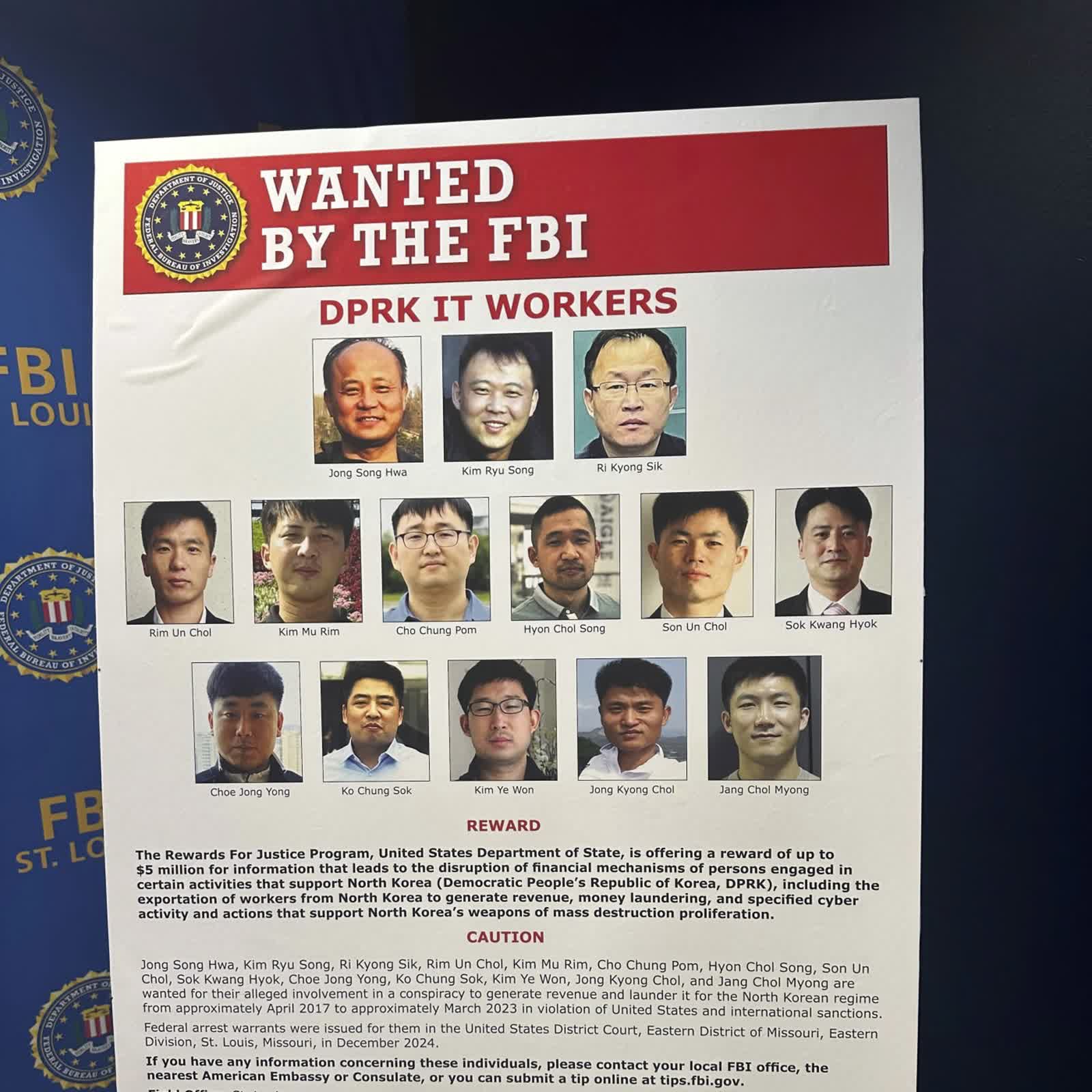WTF?! The rise of remote work has created new opportunities for both American companies and covert North Korean operatives. In a scheme that touched hundreds of US businesses and funneled millions of dollars to Pyongyang, North Korean tech workers quietly infiltrated the American workforce, relying on unwitting US citizens and sophisticated digital deception.

A recent Wall Street Journal investigation highlights the story of Christina Chapman, a Minnesota native and popular TikTok user, showing how ordinary Americans became entangled in a global fraud operation. Chapman portrayed herself online as a busy freelancer, sharing her daily routines, writing goals, and love of Japanese pop music with over 100,000 followers. Behind the scenes, federal prosecutors say her home became a "laptop farm" – a nerve center for North Korean operatives posing as US-based tech workers.
Chapman's involvement began with a simple LinkedIn message in early 2020, asking if she would "be the US face" of a company that placed overseas IT talent. Court documents suggest she was unaware her clients were North Korean operatives using stolen American identities. Her role was to receive company laptops, set up remote access, and keep the devices running so foreign workers could appear to operate from within the US. She also handled paperwork, including falsified tax documents, and sometimes forwarded paychecks after taking a cut.
The scale of the operation was staggering. Federal prosecutors noted that Chapman's "laptop farm" supported more than 300 companies, helping North Koreans collect $17.1 million in wages. Many of these companies, unaware of the scheme, sent sensitive equipment and funds directly to her address. Adam Meyers, senior vice president at cybersecurity firm CrowdStrike, said his team has tracked nearly 150 cases of North Korean workers infiltrating customer networks, with laptop farms identified in at least eight states. The FBI estimates similar scams involving thousands of North Korean workers generate hundreds of millions of dollars annually – funds US officials say directly support North Korea's nuclear weapons program.

These workers, often highly trained through North Korea's technical education programs, secured jobs at prominent American firms – sometimes holding multiple positions simultaneously and earning six-figure salaries. The scheme's sophistication went beyond simple identity theft. North Korean operatives used advanced software to bypass corporate security, including programs that spied on virtual meetings and extracted sensitive data undetected. In one case, a cybersecurity expert discovered a company laptop equipped with custom-built tools designed to evade antivirus software and firewalls, thereby providing a nearly invisible backdoor into the employer's network.
To avoid detection, the operatives leveraged gig workers for tasks ranging from passing "liveness checks" during video calls to creating legitimate freelance accounts. They even experimented with generative AI to alter their appearance in online interviews, hiring Americans to stand in when those tricks failed. Court documents reveal that the scam left a trail of collateral damage, including false tax liabilities for more than 35 Americans whose identities the operatives had stolen.
Chapman's journey revealed the vulnerabilities that made her a target for recruitment. After struggling to find steady work following a coding boot camp, she lived in a travel trailer without running water or heat when she accepted the LinkedIn offer. Her involvement grew over time. By early 2023, she had moved into a four-bedroom home in Arizona, maintaining dozens of laptops and shipping nearly 50 devices overseas – many to a Chinese city near the North Korean border – to support her "clients."

In October 2023, agents raided Chapman's home and seized more than 90 computers, ending her secret side business. By December, she was nearly out of money and facing serious federal charges but downplayed her troubles to her TikTok followers.
"I lost my job at the end of October and didn't get paid for that last month," she said in one post. "Even though I have been applying to at least three to four jobs every day, I haven't found anything yet."
Chapman pleaded guilty in February to wire fraud, identity theft, and money laundering. She earned just under $177,000 from the operation and faces a maximum prison sentence of just over nine years. A judge will sentence her on July 16.
The Wall Street Journal's investigation highlights how North Korea, despite heavy international sanctions, has turned to unconventional tactics to generate revenue. Beyond an estimated $6 billion in cryptocurrency theft, as reported by blockchain analytics firm Chainalysis, the regime's exploitation of the remote work boom has opened a lucrative new frontier.
"These crimes benefited the North Korean government, giving it a revenue stream and, in some instances, proprietary information stolen by the co-conspirators," said Nicole Argentieri, head of the Justice Department's Criminal Division.
Chapman's case represents just one example of a broader issue. Law enforcement and cybersecurity experts warn the threat is growing as North Korean operatives continuously refine their tactics and exploit gaps in corporate security. As the remote work landscape evolves, American companies – and the individuals who support them – remain at risk of becoming unwitting participants in one of the world's most audacious digital frauds.
Image credit: The Wall Street Journal
How North Korea infiltrated remote US jobs through a TikTok user in Minnesota